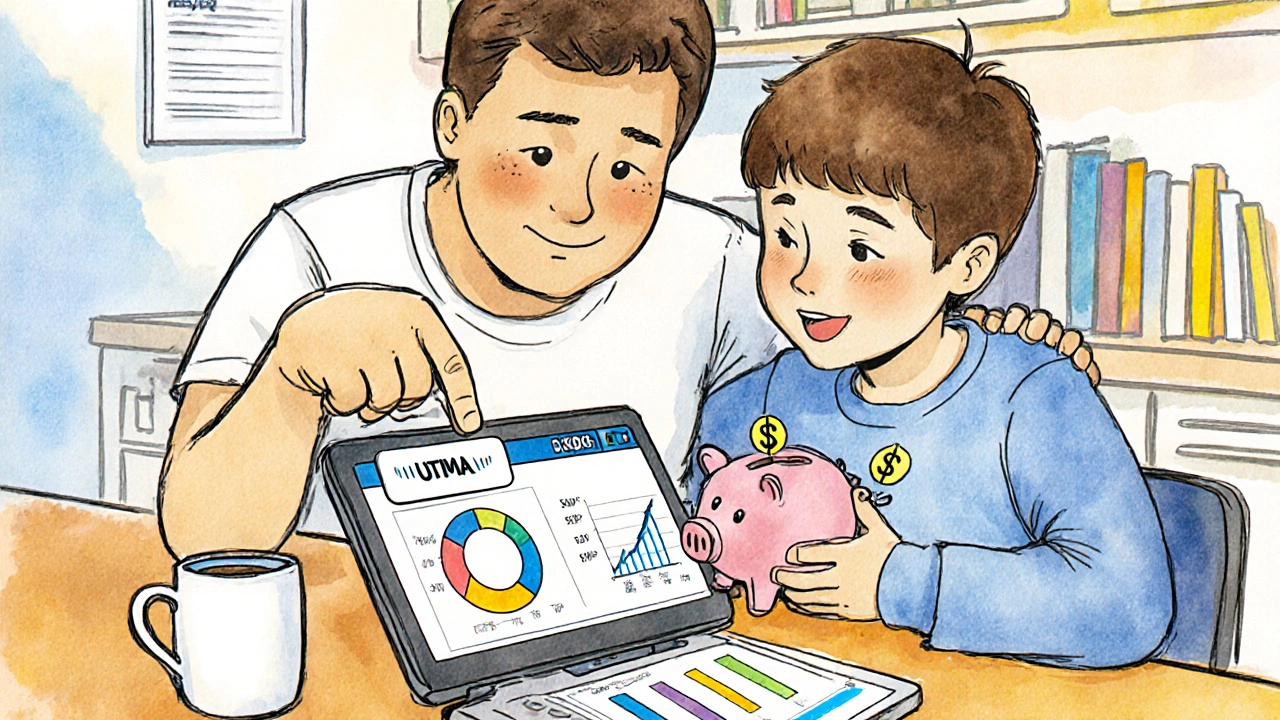UGMA Accounts: What They Are and How They Help Kids Build Wealth
When you open a UGMA, a Uniform Gifts to Minors Act account that lets adults hold assets for a child until they reach legal age. Also known as custodial account, it’s one of the simplest ways to give a child money that grows over time—without setting up a trust. You don’t need a lawyer, you don’t need a fancy platform, and you don’t have to worry about complex tax filings. Just open an account at a brokerage, deposit cash or securities, and let it grow. The child owns it once they turn 18 or 21, depending on your state.
UGMA accounts are often used for college savings, but they’re not limited to education. That money can go toward a car, a down payment, starting a business, or even a gap year abroad. Many parents use them to teach kids about investing early—by showing them how ETFs, stocks, or bonds grow over time. And because contributions are irrevocable gifts, they’re not counted as part of your estate for tax purposes. That’s why grandparents love them: they can give $18,000 per year (per person) without triggering gift tax, and the kid’s first $1,300 in investment income is tax-free.
But UGMA isn’t perfect. Once the child hits the age of majority, they get full control—no matter if they’re ready or not. That’s why some people prefer UTMA, a similar account that lets you hold more types of assets like real estate or intellectual property. Uniform Transfers to Minors Act accounts also let you delay control until age 25 in some states. And if you’re focused only on college, a 529 plan, a tax-advantaged account specifically for education expenses. college savings plan might be smarter: contributions grow tax-free if used for tuition, and you keep control over the funds.
Still, UGMA accounts are alive and well. They’re the go-to for people who want flexibility, simplicity, and real ownership transfer. You can buy a $500 ETF in a UGMA account today and watch it turn into $5,000 by the time your niece turns 21. No one’s forcing you to use it for college. No one’s locking the money away. It’s just yours to give—and theirs to own.
Below, you’ll find real guides on how to set up these accounts, what to invest in, how to avoid tax traps, and why some families regret choosing them. Whether you’re a parent, aunt, uncle, or family friend looking to give a meaningful gift, this collection cuts through the noise and shows you exactly how UGMA works in practice.
Robo-Advisors for Teens and Custodial Accounts: What You Need to Know in 2025
Learn how to open and manage a robo-advisor custodial account for teens in 2025. Understand the rules, top platforms, SEC requirements, and what happens when your child turns 18.
View More